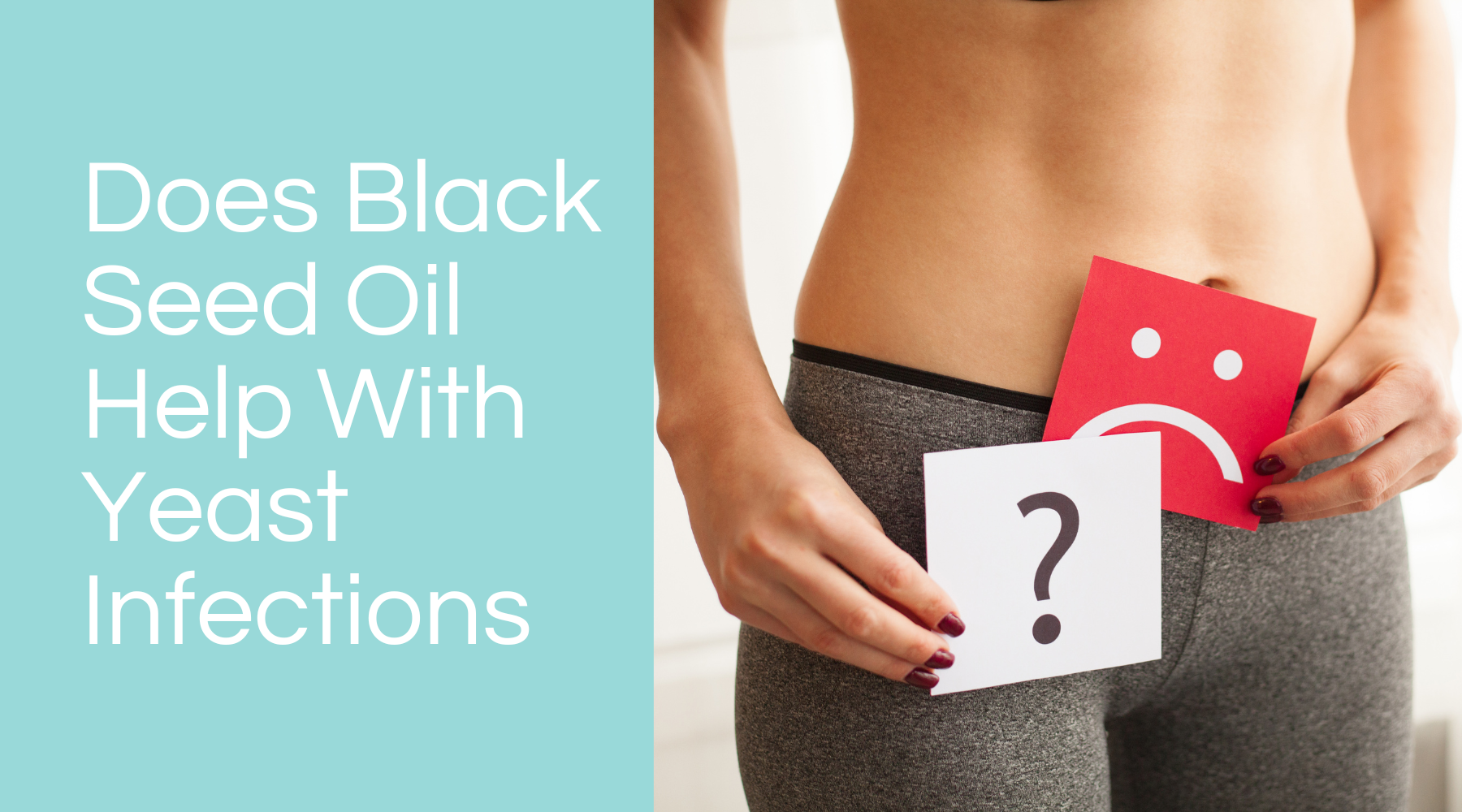
While black seed oil may not be the ultimate cure for yeast infections, it has demonstrated promising antifungal and anti-inflammatory properties that could provide relief and support the body’s natural defenses. Its multifaceted actions, from breaking down biofilms to boosting immune response, make it a valuable tool in a holistic approach to health. However, remember that black seed oil should be seen as a complementary remedy rather than a substitute for professional medical treatment.
Itchy, painful episodes brought on by an overabundance of the fungus Candida albicans are known as yeast infections and are not enjoyable. Even though traditional antifungal drugs typically work, many people are searching for natural substitutes. Let's talk about black seed oil, a rich, dark oil used in traditional medicine for ages. But can this oil protect you from yeast infections like a knight in shining armor? Let's investigate the data and study to learn more.
Because of the unpleasant symptoms and prolonged duration of yeast infections, people frequently look for natural treatments to relieve them. Among the many choices, black seed oil has become a prominent player, hailed for its numerous health advantages. This article explores the science of black seed oil's possible use in treating yeast infections.
Nature's Defence Mechanism: The Antifungal Arsenal of Black Seed Oil
Nigella sativa seeds are the source of black seed oil, which has been used medicinally for a long time due to its antifungal solid qualities. Black seed oil's main ingredient, thymoquinone, has been thoroughly researched for its potential to fight off various fungi, including Candida albicans, which is frequently the cause of yeast infections.
Overcoming Candida: A Natural Antifungal Friend
Black seed oil has antifungal properties that can be beneficial for treating yeast infections, especially those brought on by Candida overgrowth. It has been demonstrated that thymoquinone inhibits the growth of Candida albicans and interferes with the creation of its biofilm, which may stop the yeast from attaching to and entering mucosal membranes.
Anti-Inflammatory Impact: Reducing Pain
Inflammation and discomfort are common side effects of yeast infections. Because black seed oil calms sensitive tissues, its anti-inflammatory qualities may help relieve discomfort. By lowering inflammation, one can feel better overall and have a more comfortable healing process.
Supporting the Immune System: Boosting the Body's Defences
Strong immunity is essential for both avoiding and treating illnesses. It is thought that black seed oil boosts immunological response, making the body more capable of warding off microbial intruders. Black seed oil may help the body treat and avoid yeast infections by strengthening the immune system.
Tips for Using Black Seed Oil for Yeast Infections:
- Choose cold-pressed, organic black seed oil for maximum potency and purity.
- Perform a patch test on a small area of your skin before applying it to affected areas.
- Dilute the oil with a carrier oil, like coconut or olive oil, before applying it topically.
- Apply a thin layer of the diluted oil to affected areas two to three times daily.
- Pair it with other lifestyle practices like wearing loose clothing, avoiding harsh soaps, and maintaining good hygiene.
Itchy, painful episodes brought on by an overabundance of the fungus Candida albicans are known as yeast infections and are far from enjoyable. While conventional antifungal medications are often effective, they sometimes come with side effects or may not work for recurrent cases. As a result, many people are searching for natural alternatives that can complement or replace standard treatments.
One such remedy that has gained attention is black seed oil—a rich, dark oil revered in traditional medicine for its multitude of health benefits. But can this ancient oil truly protect you from yeast infections like a knight in shining armor? Let's dig deeper into the research and evidence to uncover the potential of black seed oil for tackling yeast infections.
Why Black Seed Oil? A Natural Remedy with a Rich History
Black seed oil, extracted from the seeds of Nigella sativa, has been prized in various cultures for thousands of years. From ancient Egypt to traditional Ayurvedic medicine, this oil has been celebrated for its purported ability to treat a wide range of ailments, including skin disorders, respiratory issues, and digestive problems. But in recent years, science has taken a closer look at its active compounds, particularly thymoquinone, and discovered its potent antifungal, anti-inflammatory, and immune-boosting properties.
When it comes to managing yeast infections, these qualities make black seed oil a compelling natural remedy worth exploring.
Nature’s Defense Mechanism: The Antifungal Arsenal of Black Seed Oil
The secret to black seed oil’s effectiveness lies in its unique bioactive compounds. Thymoquinone, the primary active ingredient, has been extensively studied for its antifungal properties. Research suggests that thymoquinone can inhibit the growth of Candida albicans by disrupting the yeast’s cellular functions, thereby preventing it from thriving and spreading.
Conclusion: While black seed oil may not be the ultimate cure for yeast infections, it can be a valuable ally in your natural approach to relief. With its impressive antifungal and anti-inflammatory properties, it offers a gentle and potentially effective way to soothe discomfort and support healing. So, if you're looking for a natural option to complement your treatment plan, give black seed oil a try. But remember, always prioritize professional medical advice and use the oil with caution and proper guidance.